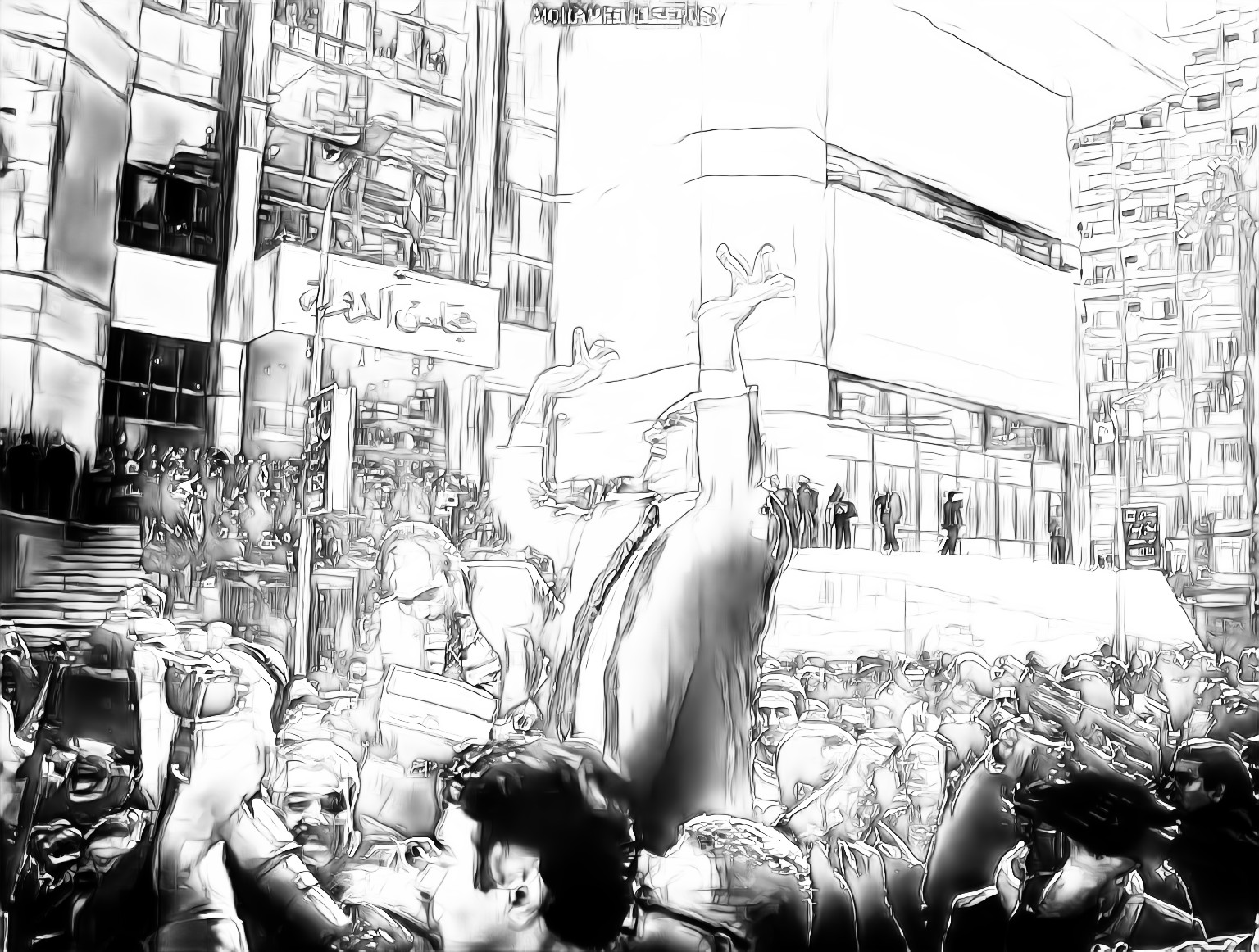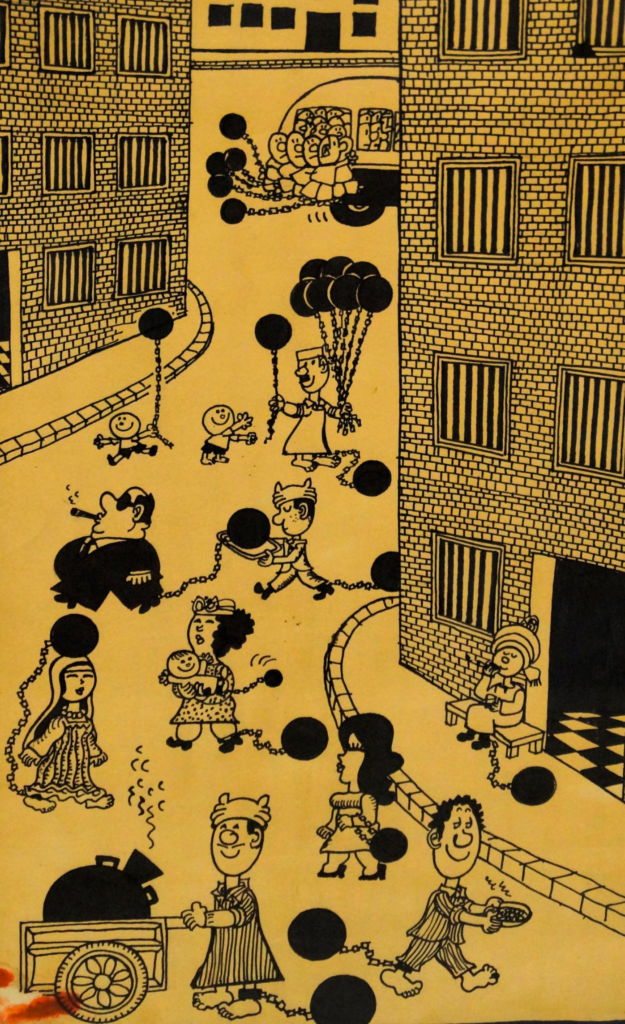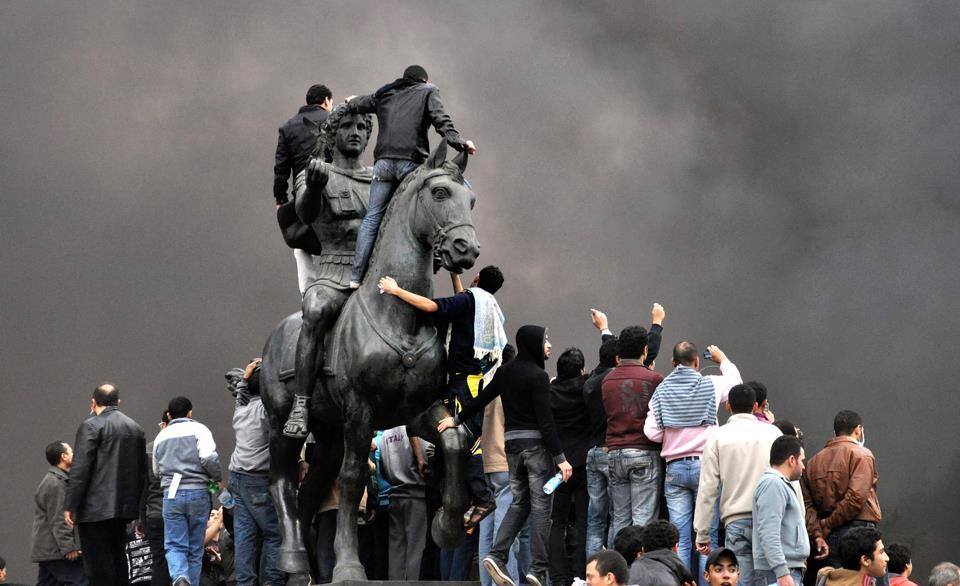April 25: A crack in the wall of fear?
- by محمد نعيم

Hundreds were detained in the week leading up to the April 25 protests, including well-known activists and journalists. Some were detained when the police conducted arbitrary round-ups of young people from coffee shops ahead of the protest, and others were arrested while courageously demonstrating. I personally know seven of those detained — brave souls who are paying a hefty price to preserve their basic humanity.
The protests were sparked by Egypt’s transfer of sovereign control of the Red Sea islands Tiran and Sanafir to Saudi Arabia. It is hard to believe that we have reached the point where the faintest of attempts to break the state’s republic of fear leads to the detention of hundreds of individuals in a matter of a few days. After all, it was only recently that Egyptians succeeded in disposing of Hosni Mubarak’s rule in what was arguably a relatively less costly revolt.
This is probably why it was hard for many people to recognize that the goal of the April 25 movement was merely to make an incision in the wall of fear that was installed by the current government to silence dissent. Following the call for protests, many were quick to imagine a new revolution, perhaps another communication blackout — reminiscent of January 28, 2011 — and even a potential rift in the political leadership that would proclaim the end of the current president’s time in office … none of which took place.
I believe the primary motto used by protesters on April 25, “Land is Honor,” is isolated from the reality on the ground, to say the least. The essence of any real democratic movement in Egypt must be based on a call for freedom, not a dispute over land, especially uninhabited islands like Tiran and Sanafir.
The real crisis we are facing today is reflected in our fear to walk in the streets or to set foot in football stadiums. Today, we witness how Egyptian land is divided and distributed among elite groups to accumulate real estate capital. We are losing our agricultural land to the wretchedness of informal habitation. We are also losing Sinai, whose inhabitants are dissociating from Egypt under heavy shelling. The crisis we are living is not about the expanse of the earth within our borders, but the oppression we face daily.
Nonetheless, there is no doubt that the decision to simply let the islands go to Saudi Arabia is infuriating. How can the government break all due process regarding such land disputes? Land disputes are typically resolved through intense negotiations, international litigation and sometimes even armed conflict. The fact that this deal was done in secret is a clear violation of the military’s own raison d’être, namely, that it is the guardian of Egyptian sovereignty, territory and national security. At any rate, this debacle that the government brought on itself was tactically used to spark political protest against President Abdel Fattah al-Sisi’s administration.
The protest movement successfully unveiled the contradictions within the administration and exposed it to its supporters: How can it let go of Egyptian land and claim to be the guardian of the territory at the same time? But even though letting go of the islands did raise eyebrows among the administration’s supporters, this does not mean that they will revolt against it overnight. Concern for security and the preservation of the state (and the status quo) ultimately trumps the question of sovereignty over two islands that the majority of the population may not have even heard of before.
In other words, the social groups that benefit from this administration will continue to support it, even if it lets go of something far more precious than Tiran and Sanafir. The political matrix consolidated after June 30, 2013 is complex and tough. It will not falter in the face of nationalistic land slogans, such as those raised on April 25.
But no one can stop the masses from rising up when the time is right, and April 25 was not the right time. Popular uprisings have a life of their own and cannot be stopped by the fiercest of security clampdowns.
“But what’s the alternative to the current regime? Aren’t we at least better than Syria and Iraq?” Such statements are echoed across the population, and they give us a window into people’s perceptions and why the time is not right. Democratic groups should not undermine people’s fears and sentiments, so as to avoid becoming isolated from the people, and hopefully be able to form a striving democratic movement in the future.
Finally, any democratic movement should not place its bets on the leadership’s internal conflicts. Even if such fissures exist within the administration, democratic groups will only be scorched in the process. Any false speculations about reigning power dynamics could inflict heavy blows to the democratic movement.
Our priority today should be to secure the release of the detainees. Our goal, as a defeated democratic movement, is to secure a space for movement, and minimize the cost of repression.
This article has been translated and edited for clarity. You can read the original Arabic here.
Hundreds were detained in the week leading up to the April 25 protests, including well-known activists and journalists. Some were detained when the police conducted arbitrary round-ups of young people from coffee shops ahead of the protest, and others were arrested while courageously demonstrating. I personally know seven of those detained — brave souls who are…
For Giulio Regeni نشيد الأممية

الوسوم والمفاتيح
أقباط أممية أنور السادات إسرائيل الأهلى الإخوان المسلمون الإسلاميون الإسماعيلى التطبيع التفويض الثورة الفلسطينية الثورة المصرية الجمهورية الجيش الربيع العربى الزمالك السيسى السينما المصرية الشيوعيون الصحوة الإسلامية الصين الطبقة الوسطى الفاشية الكورة المصرية المراجعة الوطنية المصرية الولايات المتحدة اليسار تاريخ العصامية والجربعة ترامب تيران وصنافير جمال عبد الناصر حرب أكتوبر حريق القاهرة حسنى مبارك دولة يوليو صلاح نصر فلسطين ماسبيرو مرأة مصر نسوية نوستالجيا هزيمة يونيو يناير

قائمة الكتابات بحسب المسائل والهموم
| M | T | W | T | F | S | S |
|---|---|---|---|---|---|---|
| 1 | 2 | 3 | 4 | |||
| 5 | 6 | 7 | 8 | 9 | 10 | 11 |
| 12 | 13 | 14 | 15 | 16 | 17 | 18 |
| 19 | 20 | 21 | 22 | 23 | 24 | 25 |
| 26 | 27 | 28 | 29 | 30 | 31 | |
